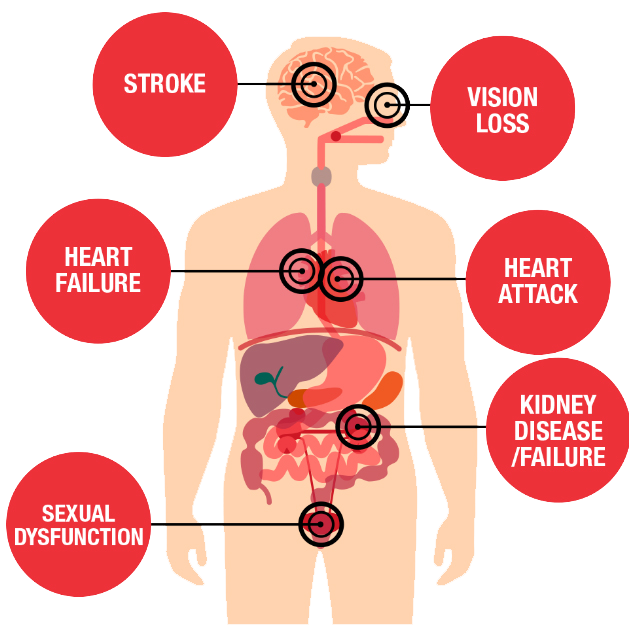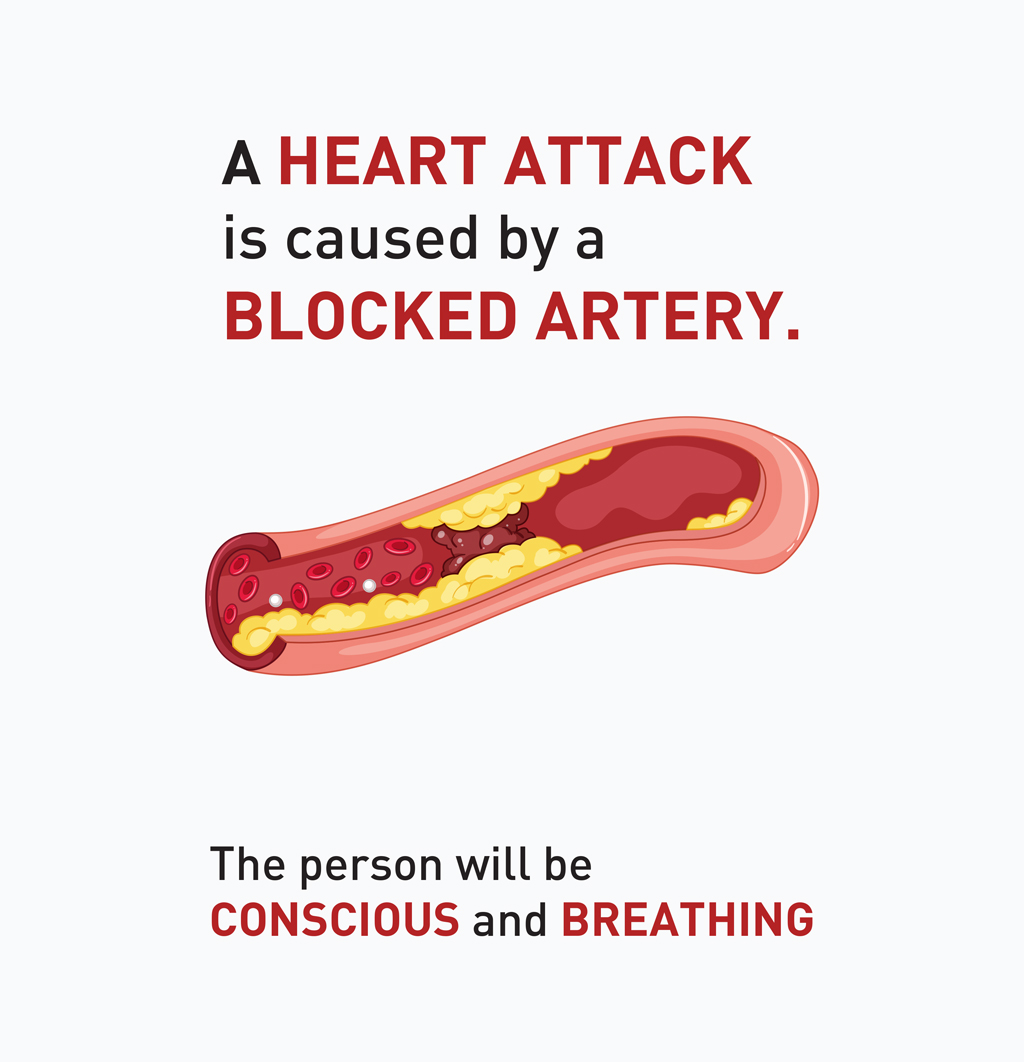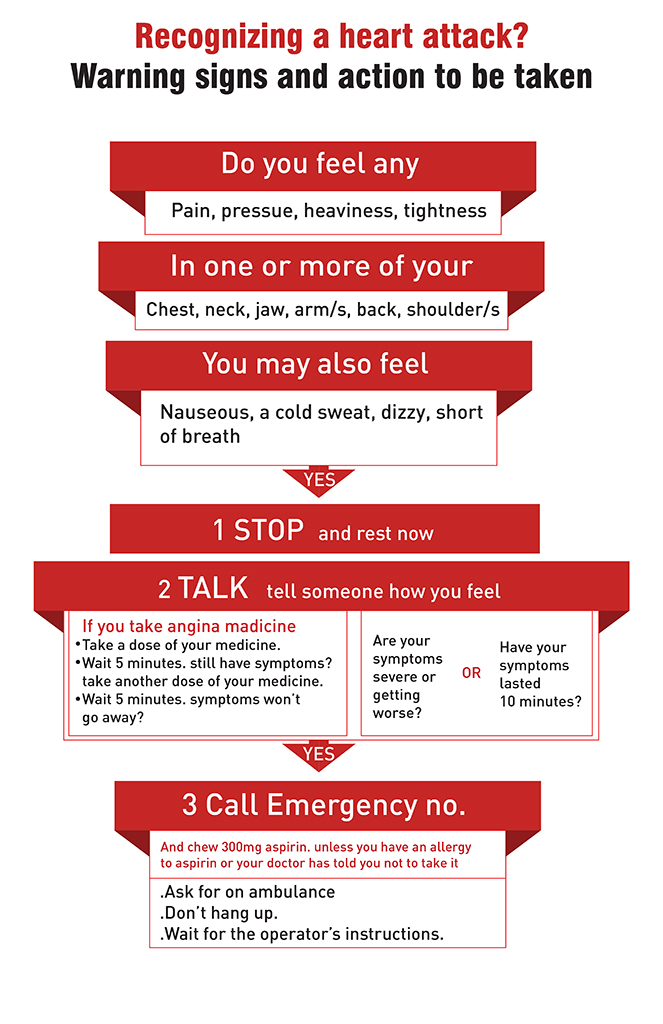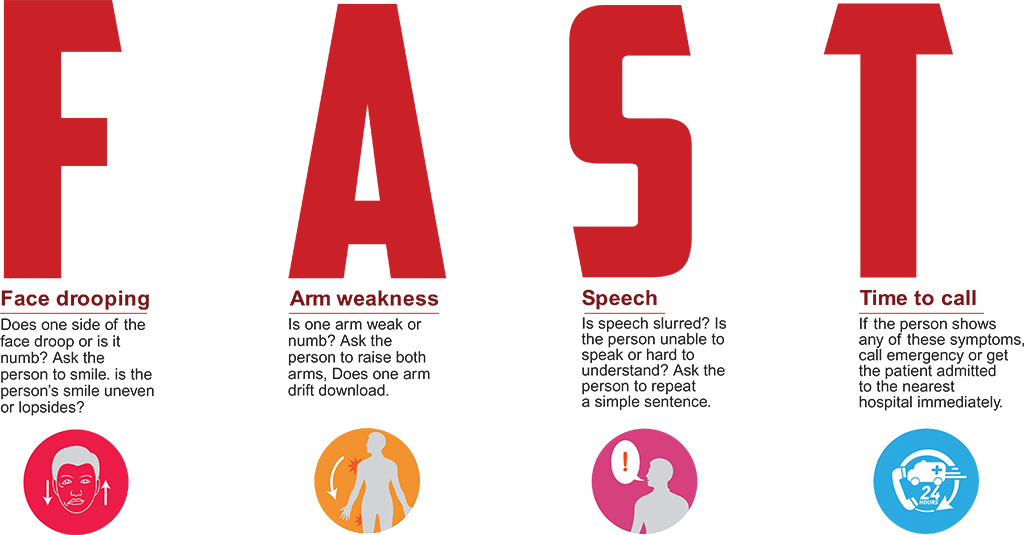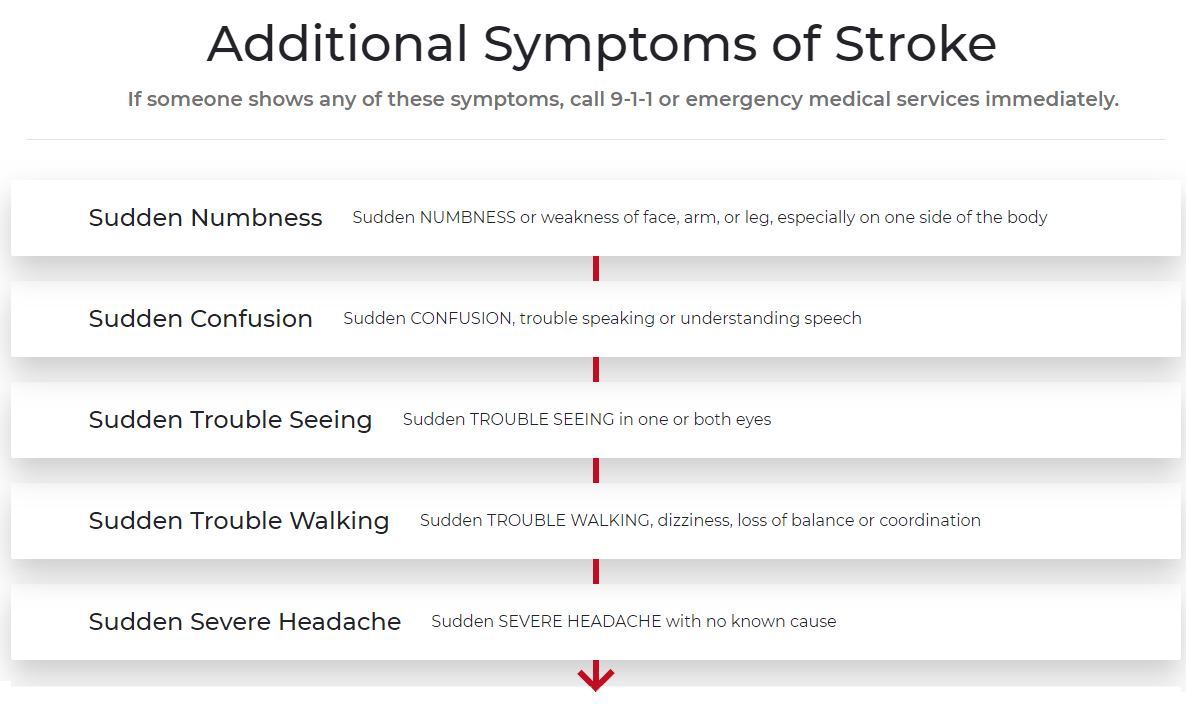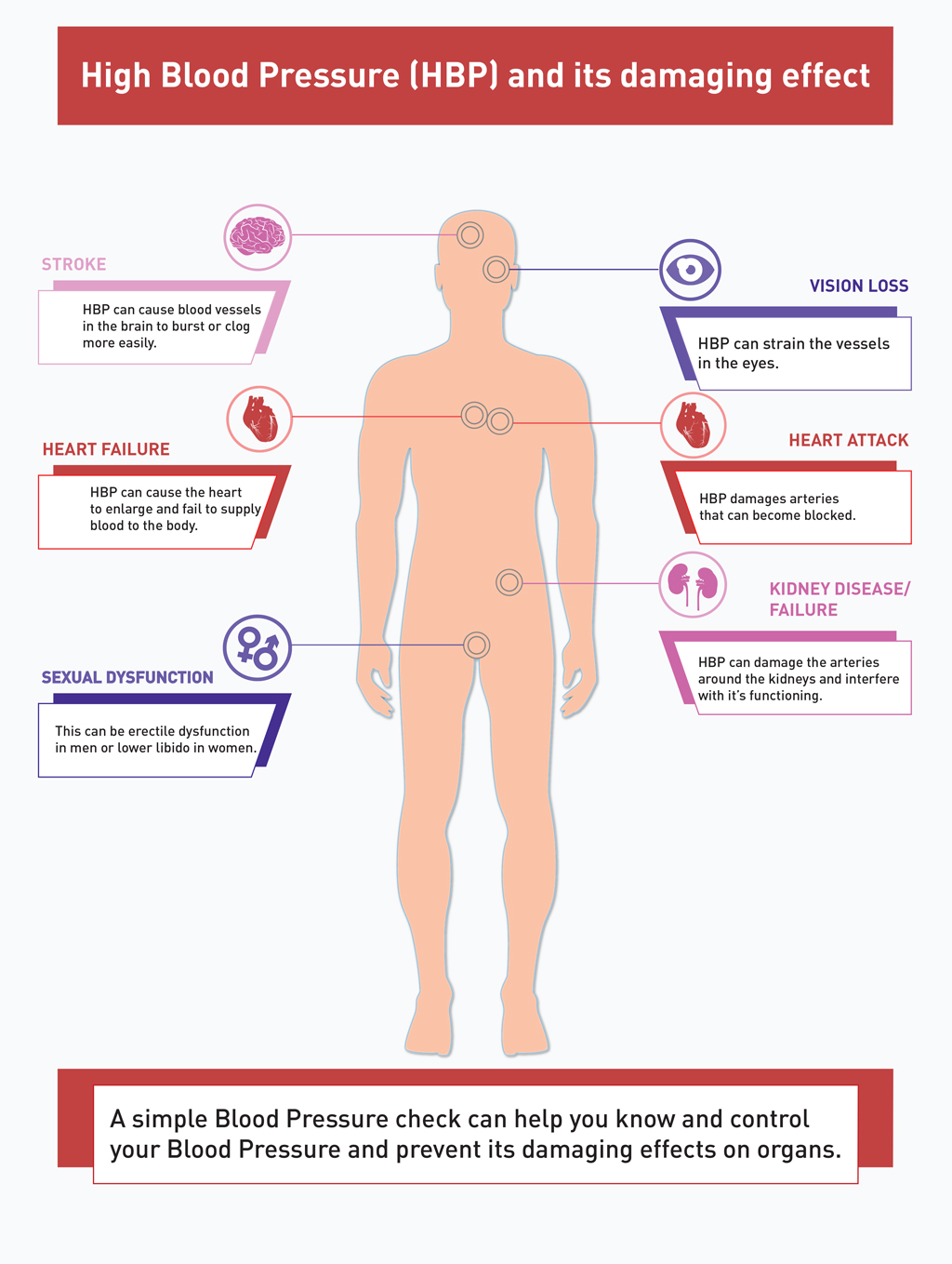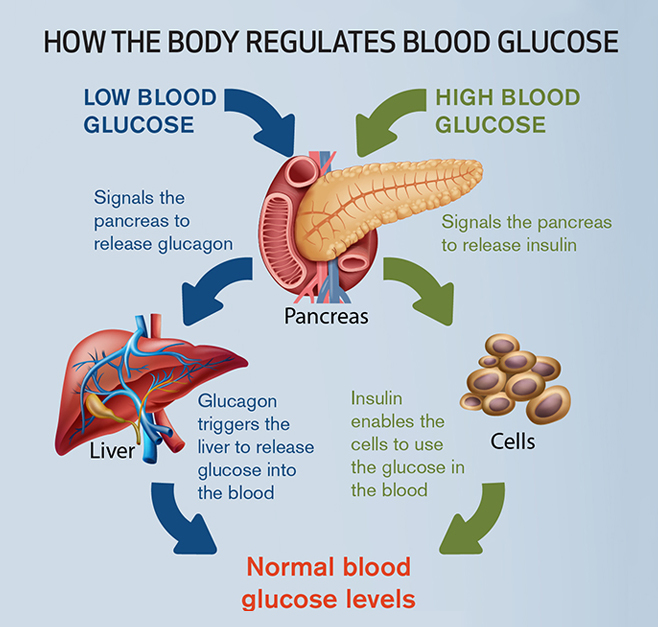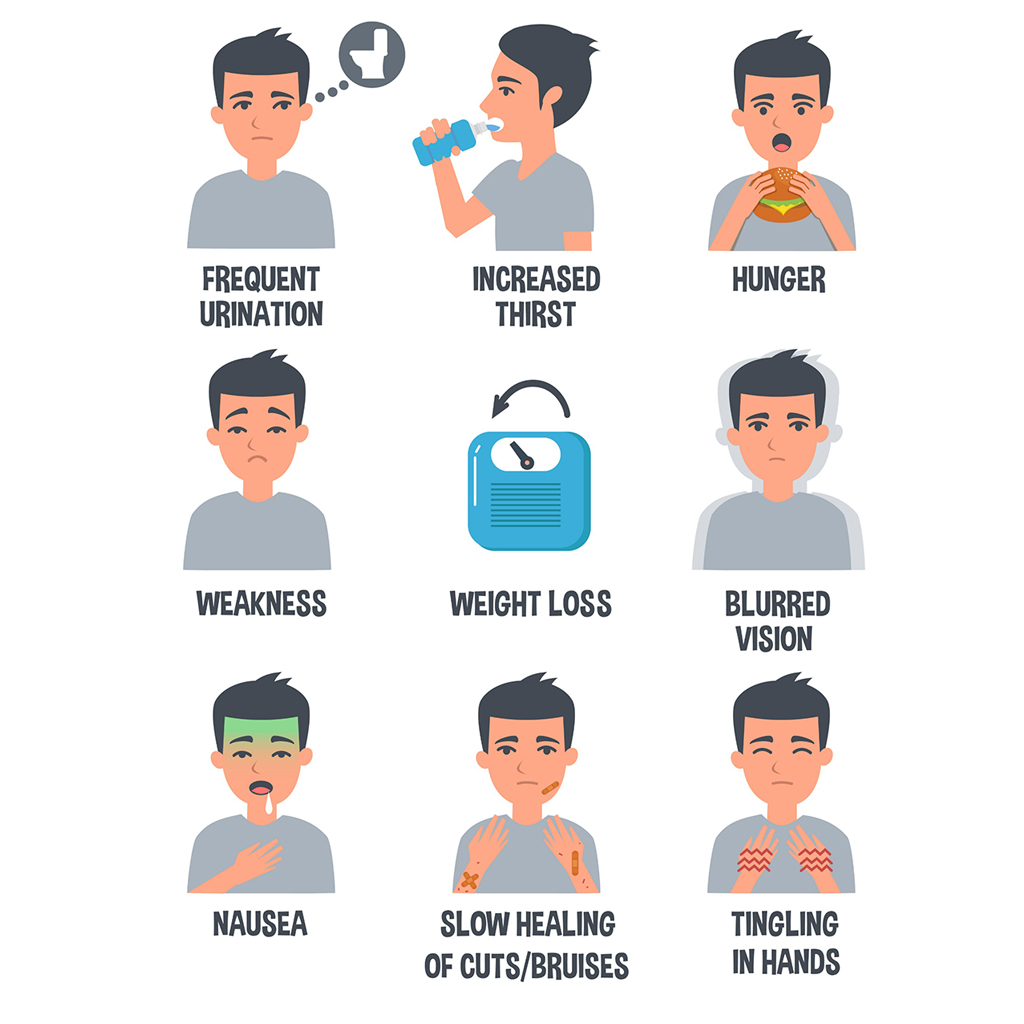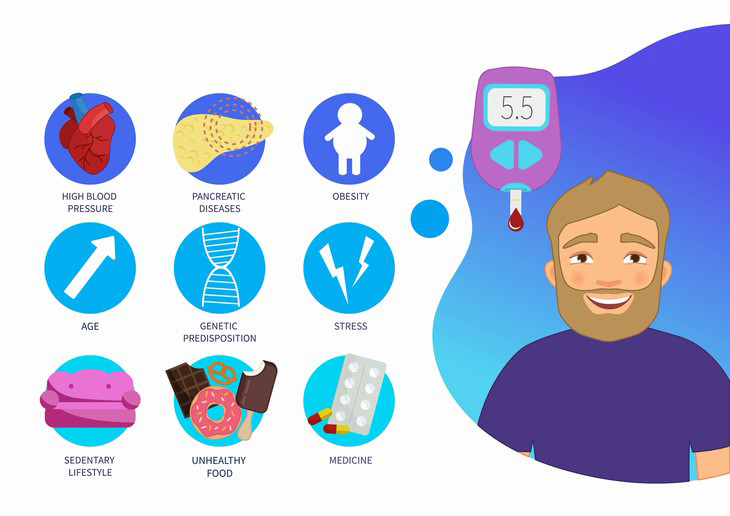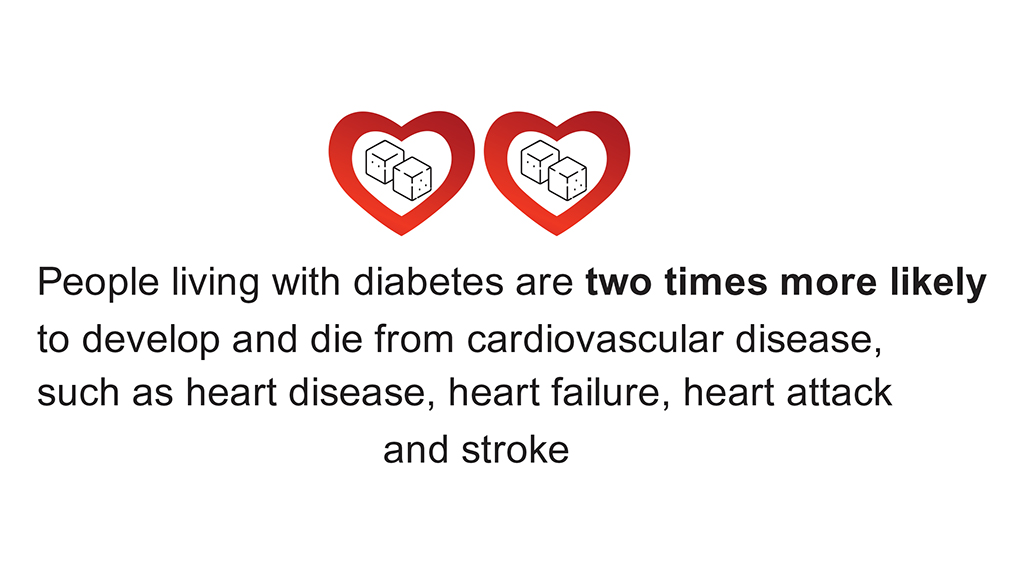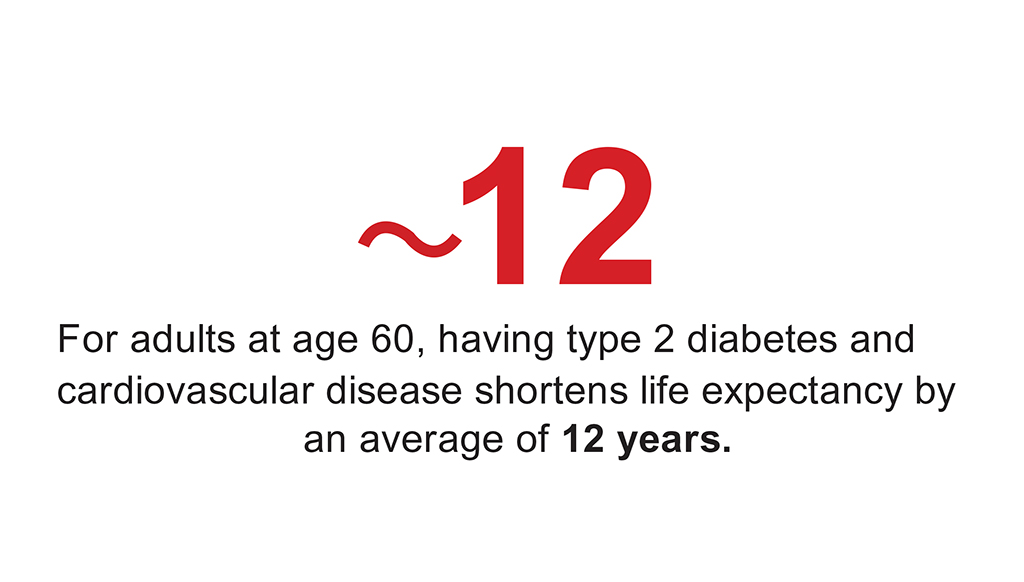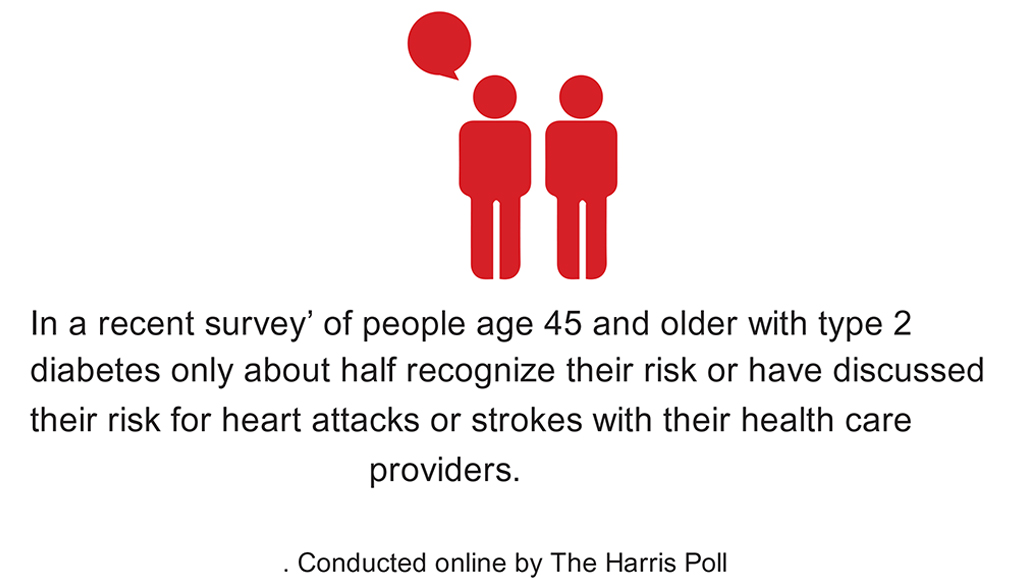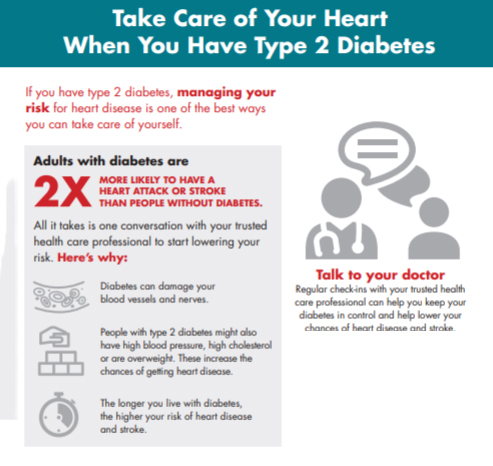Heart Care
Heart Healthy Eating
You can reduce your risk for developing heart disease by learning about the various types of heart disease, understanding the symptoms associated with heart disease and adopting heart-healthy lifestyle strategies
Are You At Risk ?


Even modest changes to your diet and lifestyle can improve your heart health and
lower your risk by as much as 80%.
Risk factors that can be managed
- High blood pressure / Hypertension
- High blood cholesterol
- Lack of regular activity
- Obesity or overweight
- Diabetes
- Smoking
High blood pressure / Hypertension
- High blood pressure is defined as a persistent increase in values i.e. systolic blood pressure above ≥ 140 mmHg (Systolic blood pressure is the maximum pressure in the arteries when the heart contracts.)and/or a diastolic blood pressure ≥ 90 mmHg (Diastolic blood pressure is the minimum pressure in the arteries between the heart’s contractions.)
Healthy and Unhealthy Blood Pressure Ranges
- Learn what’s considered normal, as recommended by the European Society of cardiology. See the chart
Note: A diagnosis of high blood pressure must be confirmed with a medical professional. It is also important to evaluate any unusually low blood pressure readings.
Blood Pressure Categories
Classification of office blood pressurea and definitions of hypertension gradeb
- BP = blood pressure; SBP = systolic blood pressure
- a BP category is defined according to seated clinic BP and by the highest level of BP, whether systolic or diastolic
- b Isolated systolic hypertension is graded 1, 2, or 3 according to SBP values in the ranges indicated. The same classification is used for all ages from 16 years
Blood pressure categories
Health Threats from High Blood Pressure
In most cases, the damage done by high blood pressure (HBP, or hypertension) takes place over time. Left undetected (or uncontrolled), high blood pressure can lead to:
1. Heart Attack
- Heart attack — High blood pressure damages arteries that can become blocked and prevent blood flow to the heart muscle
Signs And Symptoms
These are the most common symptoms of a heart attack. You may have just one, or combination
- Chest discomfort.
- Most heart attacks involve discomfort in the center of the chest that lasts more than a few minutes, or that goes away and comes back. It can feel like uncomfortable pressure, squeezing, fullness or pain.
- Discomfort in other areas of the upper body.
- Symptoms can include pain or discomfort in one or both arms, the back, neck, jaw or stomach.
- Shortness of breath with or without chest discomfort.
- Other signs may include breaking out in a cold sweat, nausea or lightheadedness.
- Heart attacks often manifest themselves differently in women than in men. As with men, women’s most common heart attack symptom is chest pain or discomfort.
- But women are somewhat more likely than men to experience some of the other common symptoms, particularly shortness of breath, nausea/vomiting, and back or jaw pain
What to do If You Think You are Having A Heart Attack? Or First AID in Heart Attack
If you feel any of the above symptoms follow these steps:
- Stop
- Rest immediately
- Talk
- Tell someone how you feel
- Rest immediately.
- If you Have Being Taking Angina Medicine
- Take a dose of your medicine
- Wait for 5 minutes
- Still have symptoms? Take another dose of your medicine
- Wait for 5 minutes
- Call Emergency No. (+94 12345 67890).
- Call emergency no…. if your symptoms are severe, getting worse or have lasted for 10 minutes
- Ask for an ambulance
- Don’t hang up
- Wait for the operator’s instructions
- While on the phone, chew 300mg aspirin, unless you have an allergy to aspirin or if your doctor has told you not to take it
2. Stroke
- High blood pressure ( HBP )is the single most important risk factor for stroke
- A stroke occurs when a blood vessel that carries oxygen and nutrients to the brain is either blocked by a clot or bursts (or ruptures)
- When that happens, part of the brain cannot get the blood (and oxygen) it needs, so it and brain cells die
Stroke Symptoms
-
- Spot a stroke F.A.S.T.
- Face Drooping
- Does one side of the face droop or is it numb? Ask the person to smile
- Arm Weakness
- Is one arm weak or numb? Ask the person to raise both arms. Does one arm drift downward?
- Speech Difficulty
- Is speech slurred, are they unable to speak, or are they hard to understand? Ask the person to repeat a simple sentence, like “the sky is blue.” Is the sentence repeated correctly?
- Time To Call Emergency No
- If the person shows any of these symptoms, even if the symptoms go away, call …. and get them to the hospital immediately
3. Heart Failure
- The increased workload from high blood pressure can cause the heart to enlarge and fail to supply blood to the body
3. Kidney Disease or Failure
- High blood pressure can damage the arteries around the kidneys and interfere with their ability to filter blood effectively
4. Vision Loss
- High blood pressure can strain or damage blood vessels in the eyes
5. Sexual Dysfunction
- High blood pressure can lead to erectile dysfunction in men or lower libido in women
6. Angina
- Over time, high blood pressure can lead to heart disease or microvascular disease (MVD)
- Angina, or chest pain, is a common symptom
7. Peripheral Artery Disease (Pad)
- Atherosclerosis caused by high blood pressure can cause a narrowing of arteries in the legs, arms, stomach, and head, causing pain or fatigue
Diabetes
- Diabetes, also called diabetes mellitus, is a condition that causes blood sugar to rise. A fasting blood glucose (sugar) level of 126 milligrams per deciliter (mg/dL) or higher is dangerous
How Diabetes Develops
- When your digestive system breaks down food, your blood sugar level rises
- The body’s cells take up the sugar (glucose) in the bloodstream and use it for energy
- The cells do this using a hormone called insulin, which is produced by the pancreas (an organ near the stomach)
Types of Diabetes
- Type 1 Diabetes
- Body does not produce enough insulin
- Those with a family history of Type 1 diabetes have a greater risk
- Type 2 Diabetes
- Body produces insulin but can’t use it well
- Type 2 diabetes at an alarming rate because of higher rates of obesity and physical inactivity
Know Diabetes by Heart
- BP levels in type 2 DM should be <140/85 mmHg, but a lower level of <130/80 mmHg is considered in selected patients (e.g. younger patients at elevated risk for specific complications) for additional gains on stroke, retinopathy risk
- For the majority of non-pregnant adults with either type I or type 2 DM one should have target of <7.0% HbA Ic for the reduction in risk of CVD and its complications in DM
Risk Factors You Can't ControlEating
- Age
- The majority of people who die of coronary heart disease are 65 or older. At older ages, women who have heart attacks are more likely than men to die from them
- Gender
- Men have a greater risk of heart attack than women do, and they have attacks earlier in life. After menopause, women’s death rate from heart disease increases
- Heredity (family health history)
- Children of parents with heart disease are more likely to develop it themselves. Most people with a strong family history of heart disease have one or more other risk factors. Just as you can’t control your age, sex and race, you can’t control your family history. Therefore, it’s even more important to treat and control any other risk factors you have
- Race
- Previous stroke or heart attack
- https://www.world-heart-federation.org/world-heart-day/world-heart-day-2019/cvds/ Cited on 18th Aug 2019 ;World Heart Federation
- https://www.goredforwomen.org/en/know-your-risk/risk-factors; Adapted from American Heart Association; cited on 19th Aug 2019.
- European Heart Journal (2018) 00, 1–98
- https://www.heart.org/en/health-topics/high-blood-pressure;Adapted from American Heart Association ; cited on 28th Aug 2019;
- Heartfoundation.org.au/your-heart/heart-attack-symptoms; Adapted from heart foundation, Cited on 20th Aug 2019
- https://www.heart.org/en/health-topics/heart-attack/warning-signs-of-a-heart-attack; Adapted from American Heart Association ; cited on 20th Aug 2019.
- https://www.stroke.org/en/about-stroke/stroke-symptoms; Adapted from American heart of Association; cited on 20th Aug 2019
- https://www.heart.org/en/health-topics/diabetes/about-diabetes; Adapted from American heart of Association; cited on 20th Aug 2019
- https://knowdiabetesbyheart.org/; Adapted from American Heart Association ; cited on 28th Aug 2019
- https://knowdiabetesbyheart.org/wp-content/uploads/2019/06/KDBH_TakeCareofyourHeart.pdf;Adapted from American heart Association; Cited on 28th Aug 2019
- https://www.escardio.org/Education/ESC-Prevention-of-CVD-Programme/Treatment-goals/Risk-factor-control/diabetes-mellitus; Adapted from ESC ( European Society of Cardiology) ;Cited on 28th Aug 2019





